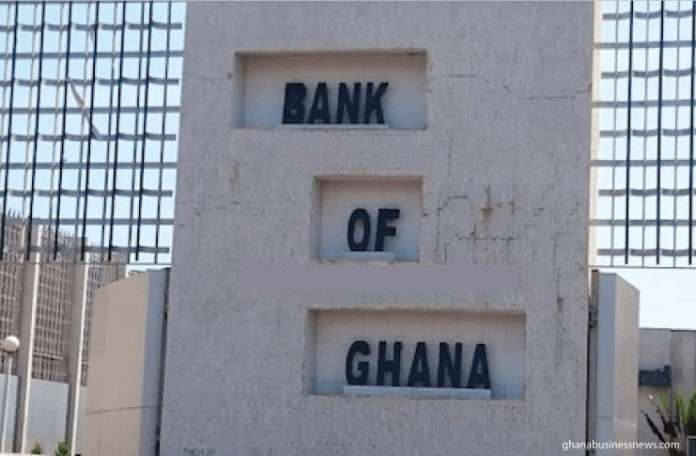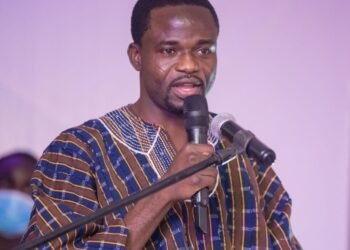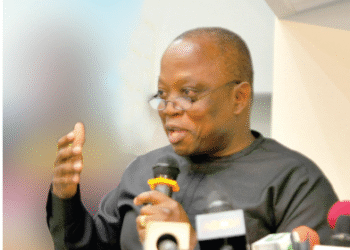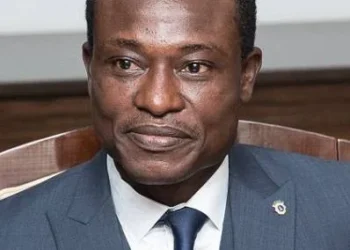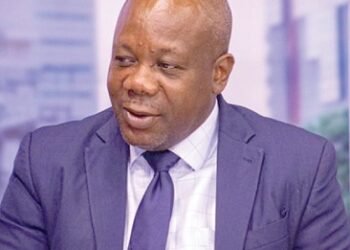Bright Simons of IMANI Africa has made startling revelations about hidden assets linked to Ghana’s banking sector cleanup.
In a detailed exposé, Simons alleged that certain business entities and individuals strategically concealed assets during the financial sector reforms, potentially undermining recovery efforts.
According to Simons, “What do ORAL, the banking cleanup, and the 24-hour economy vision all have in common? It turns out quite a bit.”
He suggested that the connections between these seemingly unrelated matters reveal deep-seated financial manipulations that continue to impact Ghana’s economy.
At the center of Simons’ claims is a large factory located on Spintex Road.
He alleged that the owner of this factory was also the proprietor of one of the banks that were shut down during the financial sector reforms.
According to him, this facility was not just a manufacturing hub but was also used for illicit financial activities.

“For a long time, the factory was used to park money, wash money, move money, etc.” Simons disclosed, adding that seven years ago, nearly $3 million was laundered through this entity under the false pretense of a consultancy service for an energy sector company.
During the heat of the bank closures, the factory owner reportedly took a loan from an offshore entity, using the factory as collateral.
Despite the crackdown on banking irregularities, this factory remained untouched, raising questions about asset recovery efforts.
Poor Asset Recovery and Political Influence
Furthermore, Bright Simons emphasized that the poor asset recovery process following the banking sector cleanup was a major factor in Ghana’s financial losses.
He noted that unlike the U.S. and U.K., where governments recovered substantial funds from bailed-out banks after the 2008-2010 financial crisis, Ghana’s approach has left the country facing billions of dollars in losses.

“Nobody wants to tell the people how much in total of the multibillion-dollar target has been recovered,” he stated, suggesting that political influence played a role in shielding certain bank owners from full accountability.
According to him, some of these individuals wield significant political clout, which has led to pressure on the Attorney General to discontinue both asset recovery efforts and legal prosecutions.
Simons further argued that asset recovery through existing bank resolution laws should be more straightforward than the mandate given to the newly established Office of Revenue and Asset Loss Recovery (ORAL).
However, with past failures in recovering assets, concerns arise over ORAL’s potential effectiveness.
Link to the 24-Hour Economy Vision
Bright Simons also revealed that the same factory, despite its controversial history, was later leased to a major industrialist in Ghana.
Under new management, the facility was revitalized and began producing essential inputs for multinational companies.
He stressed that such industrial value chains are crucial to realizing the 24-hour economy vision proposed by the government.
However, in recent weeks, the situation took a drastic turn. Simons claimed that the factory had been seized by individuals claiming to represent the offshore company that provided the alleged loan to the former bank owner.

“The problem is that the industrialist has paid a lot of money to lease the factory. There are tenancy rights at stake. There is also evidence that the offshore company may not be real; it is a front.”
Bright Simons
According to Simons, the resurfacing of these hidden assets suggests that individuals who evaded scrutiny during the banking cleanup feel emboldened by the recent change in government.
He cautioned that these entities, rather than focusing on genuine economic development, may seek to manipulate the system for personal gain.
“Serious production at the factory has halted. People who are better at washing money rather than creating jobs think they can exploit the change in government to assert themselves.”
Bright Simons
Accordingly, Simons urged the new administration to remain vigilant against such financial maneuvering.
With Ghana still grappling with the financial implications of the banking cleanup, Simons’ allegations highlight the urgent need for transparent asset recovery and enforcement of financial regulations.
His revelations call for greater oversight to prevent individuals from capitalizing on political transitions to reclaim assets obtained through dubious means.
READ ALSO: Argentina’s President Faces Probe Over Crypto Scandal

